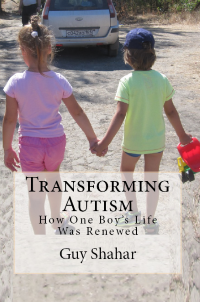To many who come across autism in passing, it may be considered a disability through which people are rendered in some way unable to function as “normal” people and thus (this part is usually unconscious) perhaps “less valuable” than those who do not have autism.
As the parent of a child with autism, I would suggest the reality is starkly different.
From what I’ve observed, the most obvious difference in the experience of autistic people is the degree of sensitivity. For an autistic person, opening the curtains on a moderately sunny morning might feel like having a very bright flashlight shone directly into their eyes at close range; a plate falling onto the kitchen floor might sound as disturbing as standing next to loud drilling on a building site without any earmuffs. The National Autistic Society has produced this short but powerful film to give us a glimpse of what it can feel like to constantly experience this sort of sensory overload.
But rather than being a deficiency, isn’t this a great attribute — an acute ability to perceive the detail of sensory information? Isn’t it a refined way of using our senses for what they are actually for? I feel the problem isn’t with the autistic person, who has these abilities, but with the rest of us whose sensory processing has been blunted by living in a world in which constant, extreme sensory stimulation is used as a substitute for excitement. Many of us seek out busy environments with flashing lights and loud noises as a means of having what we call a “good time.” We build shopping centers in confined, indoor spaces where the sound resonates and spend hours at a time there. Even the most benign children’s films are often aired at great volume in cinemas, with loud, sudden, intense emotive music. Over time, it seems our senses have adapted to the increasing prevalence of this sort of thing as the new norm, and we have learned to withstand it. The already heightened senses of some autistic people may not have. In a world in which we didn’t feel this compulsion to overstimulate ourselves in such a way and unintentionally overwhelm our autistic brothers and sisters, perhaps their sensitivity wouldn’t be “problematic”; I believe it could be a huge strength, as their refined senses would be a great asset.
Another aspect of the sensitivity of autistic people is the emotional part of it. It may often be assumed that an apparent lack of understanding of or reaction to emotional expression is indicative that there is no sensitivity to it at all. Again, I have witnessed the opposite. Someone raising their voice a little can affect an autistic person not only on the level of the sound itself, but much more so on the level of the intensity of the emotion, which they may feel powerless to stop entering them. An autistic person’s great emotional sensitivity might mean somebody else’s annoyance or anger is experienced as enormous pain. This is what I have observed in my son and other members of the community. The reactions of others can be deeply painful. Those with autism may not have the option of feeling OK with the negativity that is around them and are not given a positive way to be able to interact with it.

In the book “Transforming Autism,” which explores this perspective at greater length, I use the example of a set of very sensitive kitchen scales, which can measure to a hundredth of a gram, versus a set of robust industrial scales. If a 5-kilogram rock was dropped onto each of them, the industrial scales would likely be unaffected and go on working as normal, while the kitchen scales would at best start to malfunction — giving unreliable or incomprehensible readings — and at worst be crushed. The kitchen scales, being so refined, can give a much better quality of reading than the industrial scales, but at the cost of their resilience. To me, the analogy is obvious. Think what the growing community of autistic people could bring to this world, how they could improve it, if only we let them; if only we recognized the richness and refinement within each of them; if only we didn’t keep piling 5-kilogram rocks on top of them.
I believe a state of enhanced sensitivity can enable those who have it to bring great perception and loving care into the world. In a circumstance where calmness and mutual consideration reigned, I believe they could not only be fully integrated into the world, but become pioneering leaders, setting an example for the rest of us. But the state is fragile. We may be preventing the expression of this enormous potential and creating a world that can be intolerable for them to live in.
Let us consider autism from this perspective, and begin to respect and appreciate for what it is the unique individuality of each autistic person.
Lead image via Thinkstock.
A version of this post originally appeared on the Transforming Autism Project.
We want to hear your story. Become a Mighty contributor here.

